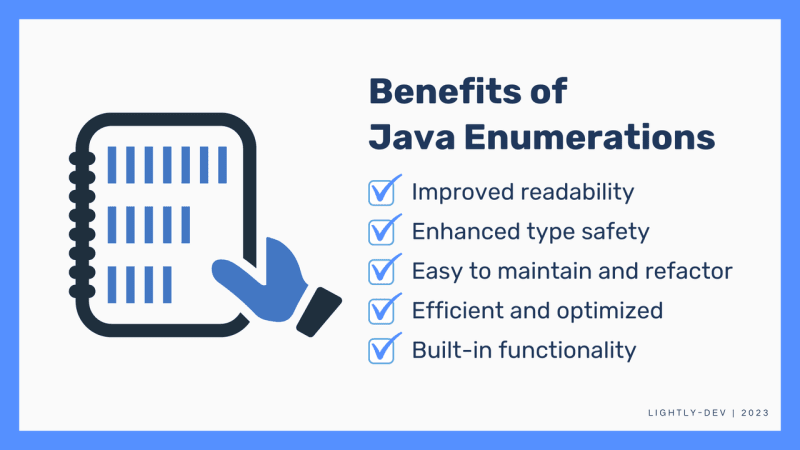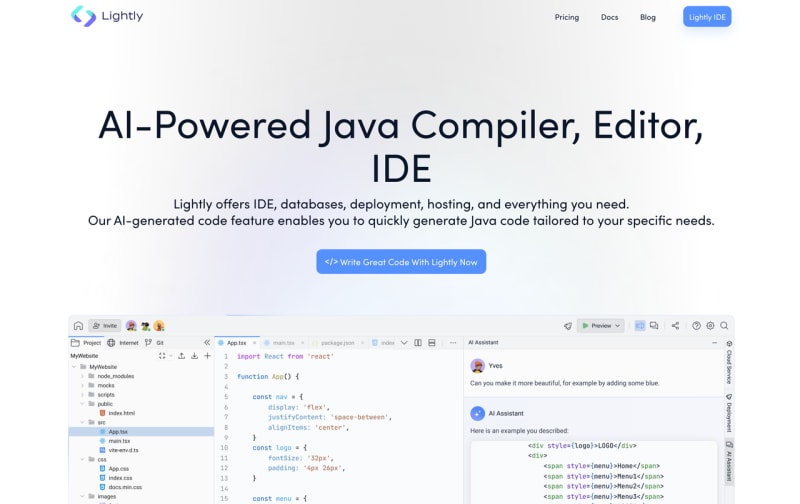Java enumerations are a powerful feature that allows developers to define a set of named constants. Enumerations in Java provide a way to represent a fixed number of values, which can be used as a type in the code. They are useful in situations where a variable can only have a limited set of values.
Enumerations help improve code readability and maintainability by providing a clear and concise way to represent a set of related constants. They also enable type safety, as the compiler can enforce that only valid enum values are used. Enumerations play a crucial role in programming by simplifying the code and making it more expressive.
In this article, we aim to provide a comprehensive guide on harnessing the power of Java enumerations with strings. We will explore the benefits of using string-based enumerations and demonstrate various techniques and best practices for working with them.
Understanding Java Enumerations
In Java, an enumeration (enum) is a special data type that allows a variable to take one value out of a set of predefined constants. Each constant is assigned a unique name and value within the enum. The purpose of using enumerations in Java is to provide a way to represent a fixed set of values that are related or have a specific meaning.
Enums are commonly used to define a set of constants that can be used in a switch statement, as well as to improve code readability and type safety.
Using enumerations in code design and organization offers several advantages.
- Improved readability: Enumerations provide a clear and self-explanatory way to represent a fixed set of values. This makes the code more readable and easier to understand for both developers and maintainers.
- Enhanced type safety: By using enumerations, the compiler can enforce type safety, preventing the use of invalid or unexpected values. This reduces the likelihood of runtime errors and improves the overall reliability of the code.
- Easy to maintain and refactor: Enumerations make it easier to maintain and refactor code. If the set of values needs to be modified or expanded, it can be done in a single location without affecting other parts of the code that rely on the enumeration.
- Efficient and optimized: Enumerations are often implemented as integers, which are more memory-efficient compared to using strings or other types of data. This can result in better performance and reduced memory usage, especially when working with large datasets.
- Built-in functionality: Java enumerations come with several built-in functionalities, such as the ability to iterate over the values, compare and sort them, and retrieve their string representations. These functionalities can simplify common programming tasks and reduce the need for additional code.
How to define a string-based enumeration in Java?
In Java, you can define a string-based enumeration using the enum keyword and assign string values to each enum constant. Here's an example:
public enum Color {
RED("Red"),
GREEN("Green"),
BLUE("Blue");
private final String label;
private Color(String label) {
this.label = label;
}
public String getLabel() {
return label;
}
}
In this example, the Color enum represents different colors, with each enum constant having a corresponding string value. The label field holds the string value, and the constructor initializes it for each enum constant. You can also define additional methods, such as getLabel(), to retrieve the string value associated with each enum constant.
You can access the string value of an enum constant like this:
Color redColor = Color.RED;
String redLabel = redColor.getLabel();
System.out.println(redLabel); // Output: "Red"
By defining a string-based enumeration in Java, you can associate string values with each enum constant, providing more descriptive representations for the enum's elements.
Iterating through string-based enumerations
In Java, enumerations are a powerful tool for representing a fixed set of values. When using string-based enumerations in Java, it is important to understand how to iterate through them effectively.
You can iterate through string-based enumerations by using the values() method provided by the enum class. Here's an example:
public enum Color {
RED("Red"),
GREEN("Green"),
BLUE("Blue");
private final String label;
private Color(String label) {
this.label = label;
}
public String getLabel() {
return label;
}
}
// Iterating through the Color enumeration
for (Color color : Color.values()) {
System.out.println(color.getLabel());
}
In this example, we iterate through the Color enumeration using the enhanced for loop. The values() method returns an array of all enum constants defined in the Color enum. By iterating over this array, we can access each enum constant and retrieve its associated string value using the getLabel() method.
The output will be:
Red
Green
Blue
Java string-based enumerations in switch statements
Switch statements are a powerful construct in Java for controlling program flow based on the value of a variable. Traditionally, switch statements could only be used with integral types, such as integers or characters.
However, with the introduction of string-based enumerations in Java, developers now have the ability to use strings as the controlling expression in switch statements. This opens up a world of possibilities, allowing for cleaner and more readable code when working with string-based values.
Here's an example:
public enum Color {
RED("Red"),
GREEN("Green"),
BLUE("Blue");
private final String label;
private Color(String label) {
this.label = label;
}
public String getLabel() {
return label;
}
}
// Using a switch statement with string-based enumeration
Color color = Color.GREEN;
switch (color.getLabel()) {
case "Red":
System.out.println("Selected color is Red");
break;
case "Green":
System.out.println("Selected color is Green");
break;
case "Blue":
System.out.println("Selected color is Blue");
break;
default:
System.out.println("Invalid color");
}
In this example, we have the Color enumeration with string-based constants. We assign a Color value to the color variable, and then we use a switch statement to compare its string value (color.getLabel()) with different cases. Based on the matching case, the corresponding code block is executed.
The output, in this case, will be:
Selected color is Green
Advanced Techniques with String-based Enumerations
Combining string-based enumerations with other data types
In Java, enumerations are a powerful way to define a set of constant values. When using string-based enumerations, we can combine them with other data types to create more flexible and expressive code.
For example, we can use string-based enumerations as keys in maps or as fields in classes. This allows us to associate additional data or behavior with each enumeration value.
public enum Color {
RED("Red", "#FF0000"),
GREEN("Green", "#00FF00"),
BLUE("Blue", "#0000FF");
private final String label;
private final String hexCode;
private Color(String label, String hexCode) {
this.label = label;
this.hexCode = hexCode;
}
public String getLabel() {
return label;
}
public String getHexCode() {
return hexCode;
}
}
In this example, we have the Color enumeration with string-based constants. Additionally, we define a hexCode field to hold the hexadecimal color code associated with each color.
You can then access the additional fields or invoke methods defined in the enumeration along with other data types. Here's an example:
Color color = Color.RED;
System.out.println(color.getLabel()); // Output: "Red"
System.out.println(color.getHexCode()); // Output: "#FF0000"
Using string-based enumerations as method parameters
In Java, you can use string-based enumerations as method parameters by specifying the enumeration type in the method signature, allowing for more flexibility and readability in our code.
Here's an example:
public enum Color {
RED,
GREEN,
BLUE
}
public void printColor(Color color) {
System.out.println("Selected color: " + color);
}
// Usage example
printColor(Color.RED);
In this example, we have the Color enumeration. The printColor() method takes a parameter of type Color, which allows you to pass any valid Color enumeration constant as an argument. Inside the method, you can work with the passed Color value as needed.
When invoking the printColor() method, you can pass a specific Color enumeration constant such as Color.RED as an argument.
The output will be:
Selected color: RED
Implementing custom methods and behaviors in string-based enumerations
Custom methods can be implemented to perform specific operations or calculations based on the enumeration value, further enhancing the functionality and versatility of string-based enumerations.
To implement custom methods and behaviors in string-based enumerations in Java, you can define additional methods within the enum declaration. Here's an example:
public enum Direction {
NORTH("North", 0),
EAST("East", 90),
SOUTH("South", 180),
WEST("West", 270);
private final String label;
private final int degrees;
private Direction(String label, int degrees) {
this.label = label;
this.degrees = degrees;
}
public String getLabel() {
return label;
}
public int getDegrees() {
return degrees;
}
public void printInfo() {
System.out.println("Direction: " + label);
System.out.println("Degrees: " + degrees);
}
}
In this example, the Direction enum represents different compass directions, with each enum constant having a string label and corresponding degrees. We define additional methods getLabel(), getDegrees(), and printInfo().
The getLabel() and getDegrees() methods retrieve the associated values for each enum constant. The printInfo() method prints detailed information about the direction, including the label and degrees.
You can use these custom methods on the enum constants like this:
Direction direction = Direction.NORTH;
System.out.println(direction.getLabel()); // Output: "North"
System.out.println(direction.getDegrees()); // Output: 0
direction.printInfo();
The output will be:
North
0
Direction: North
Degrees: 0
By implementing custom methods and behaviors within string-based enumerations, you can add additional functionality specific to each enum constant, providing more flexibility and expressive power in your Java code.
Guidelines for handling changes or additions to string values
When working with Java enumerations that use strings as values, it is important to follow certain guidelines to handle changes or additions effectively:
- Avoid changing existing string values: Once a string value is defined and used in an enumeration, it is recommended to avoid changing it. Changing existing string values can lead to compatibility issues, especially if the enumeration is used in a serialized format or stored in a database. Instead, consider introducing new string values for any required changes.
- Use backward-compatible additions: If there is a need to add new string values to an enumeration, it is recommended to do so in a backward-compatible manner. This means that existing code should not break when new values are introduced. To achieve this, place new values at the end of the enumeration or use a versioning approach to handle different sets of values.
- Consider the impact on existing code: Before making any changes or additions to string values, carefully consider the impact on existing code that uses the enumeration. Ensure that the changes are well-documented and communicated to developers who use the enumeration, so they can update their code accordingly.
- Update documentation and communicate changes: Whenever changes or additions are made to string values in an enumeration, it is important to update the documentation and communicate the changes to the relevant stakeholders. This includes providing clear instructions on how to handle the changes and any potential implications for existing code.
It's important to note that creating and manipulating strings can be resource-intensive. Enumerations that use strings may require more memory compared to those that use primitive types. This can impact the overall performance of your application, especially if you have a large number of enumerations or frequently create new instances.
To mitigate these performance and memory concerns, consider using a limited set of predefined string values rather than dynamically creating new strings. This can help reduce the memory footprint and improve performance by reusing existing string instances.
Additionally, be mindful of the string comparison operations. String comparisons can be slower compared to comparing primitive types. If your application frequently relies on comparing enumerations, consider implementing custom comparison logic using more efficient techniques like using integer-based values or switch statements.
Learn Java Programming with Java Online Compiler
Are you struggling with solving errors and debugging while coding? Don't worry, it's far easier than climbing Mount Everest to code. With Lightly IDE, you'll feel like a coding pro in no time. With Lightly IDE, you don't need to be a coding wizard to program smoothly.
One of its notable attributes is its artificial intelligence (AI) integration, enabling effortless usage for individuals with limited technological proficiency. By simply clicking a few times, one can transform into a programming expert using Lightly IDE. It's akin to sorcery, albeit with less wands and more lines of code.
For those interested in programming or seeking for expertise, Lightly IDE offers an ideal starting point with its Java online compiler. It resembles a playground for budding programming prodigies! This platform has the ability to transform a novice into a coding expert in a short period of time.
Read more: [A Comprehensive Guide for Java Enumerations with Strings](https://www.lightly-dev.com/blog/java-enum-of-strings/)





Top comments (0)